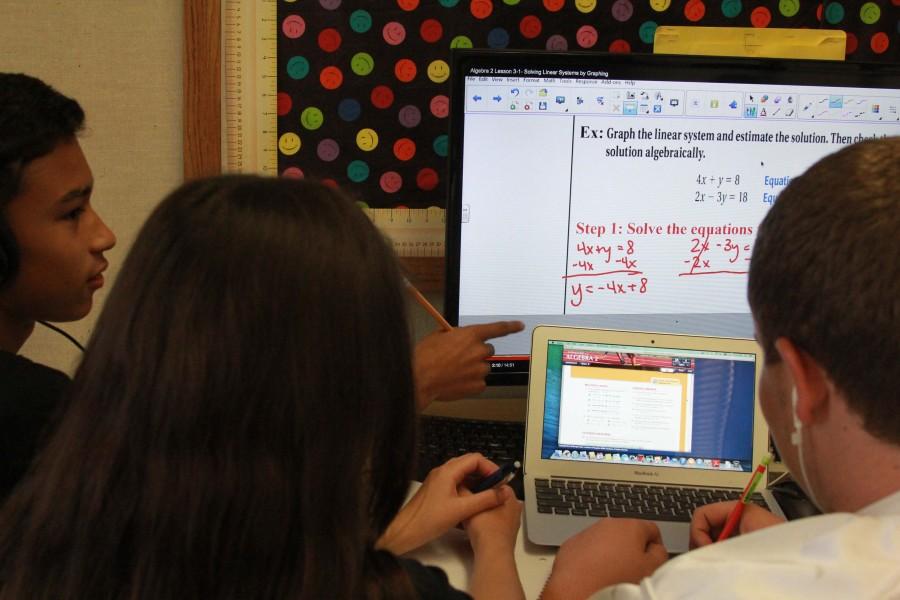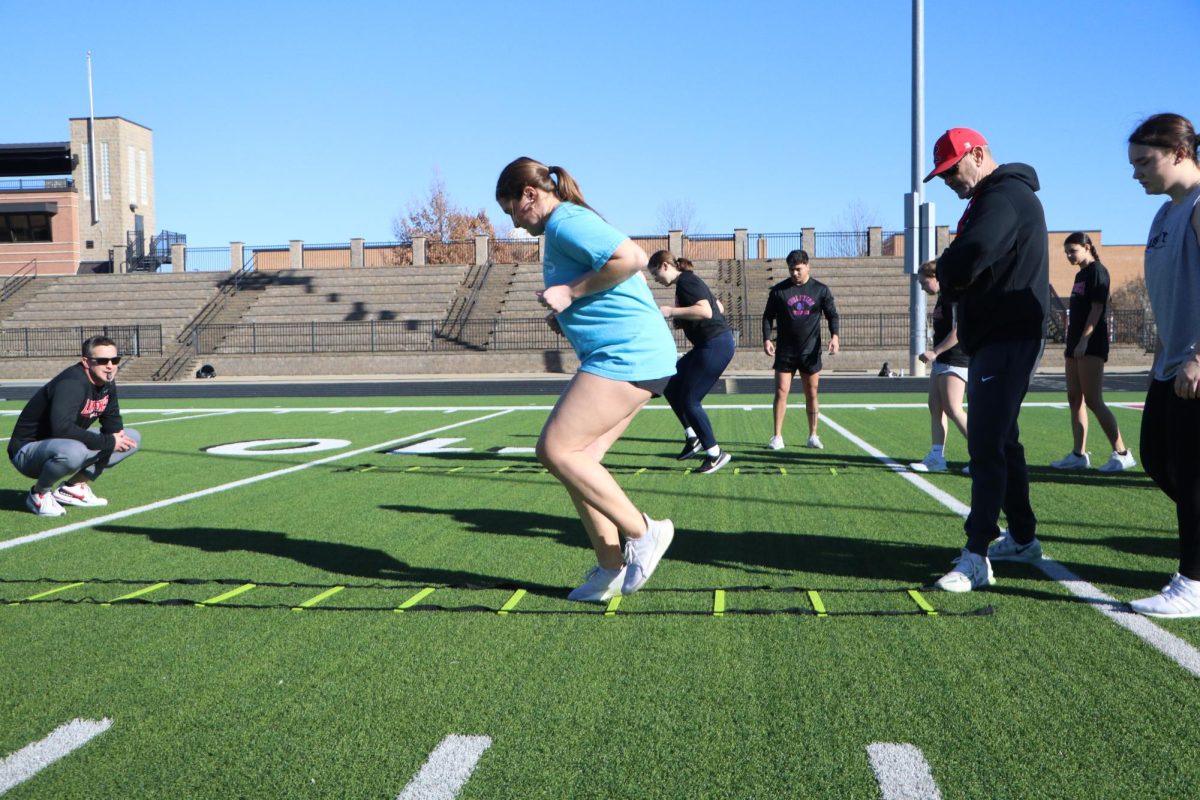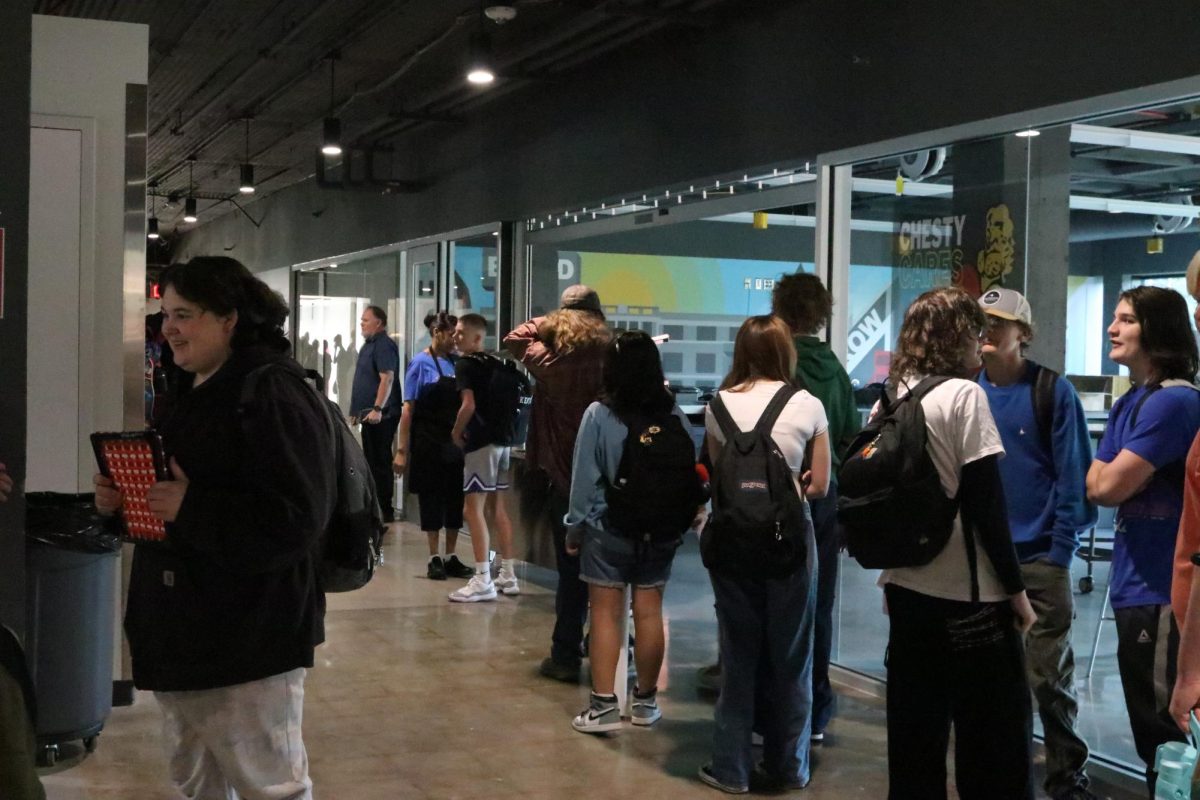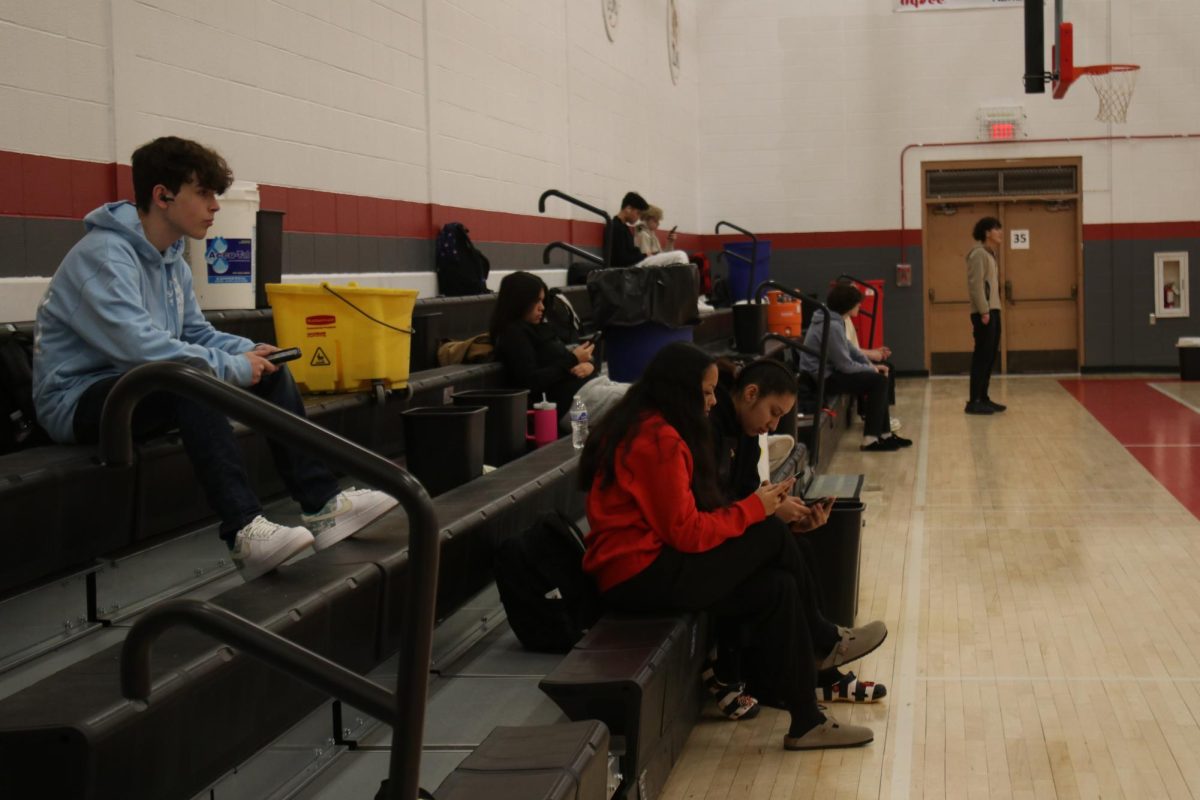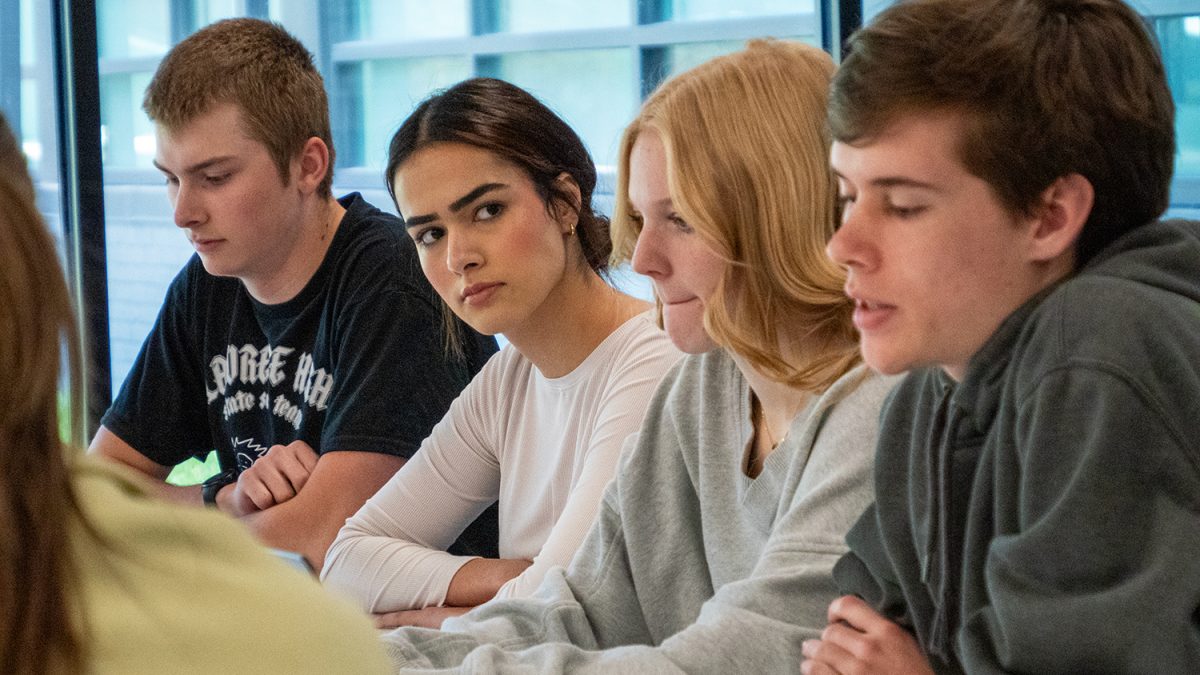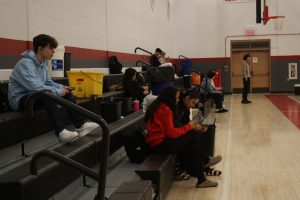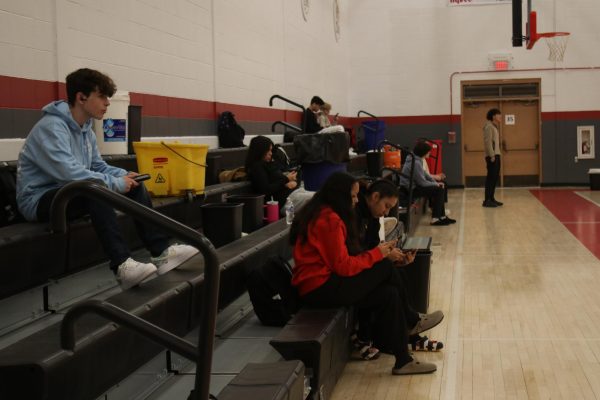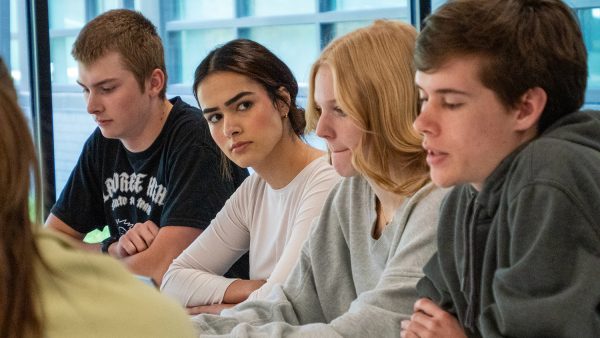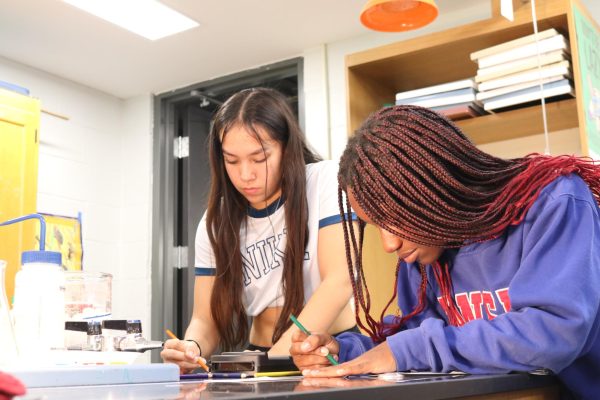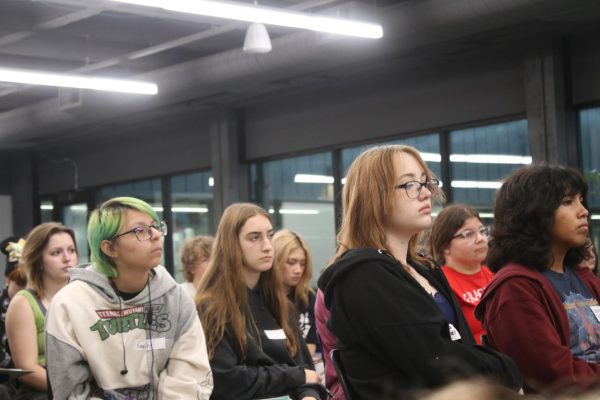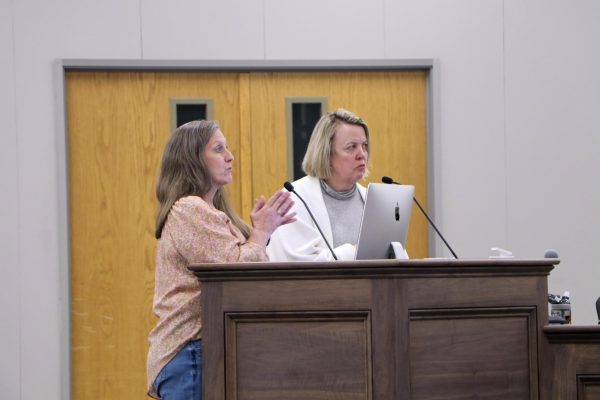More textbooks going online
Completing a problem, sophomores Quinton Hamm, Olivia Lemus and Reese Stellwagon utilize the online textbook in Leslie Dougan’s Algebra 2 class. “[The online text] relieves my stress of forgetting my book at home,” Lemus said.
November 17, 2014
Backs ache and backpacks break under the sheer weight of textbooks, but all of that could soon go away.
Last month, students throughout the district were surveyed about their personal technology and internet access. The district conducted the survey to get an idea of how feasible it would be to expect students to log onto their homework assignments with personal technology, which would be necessary if students were expected to read textbooks online.
“I would like it,” freshman Rollin Love said, “because I forget my book at home often.”
Even with online textbooks, printed textbooks wouldn’t go away entirely, Most classes would have classroom sets and extras to loan out. However, the online editions can be more easily updated and not nearly as heavy.
Spanish teacher Pat Wittry has been using online textbooks in her classes for two years and has been able to navigate it fine. However, she is unsure about how some students are dealing with the transition.
“It’s exciting but it’s also a concern,” she said. “I think with younger teachers it might be easier because they are experienced in that kind of work and know how to do it. Although a lot of my younger students don’t know how to use technology in an academic way.”
Getting students to use technology as a learning tool has been a concern at the district level and was emphasized with the implementation of BYOD wifi.
However, in order to use the technology, students must have devices they can access their work on at school and at home. This is not the case for all students.
Sophomore Sabrina Mason is among students that would be limited by a switch.
“I don’t have a phone or any access to WiFi at home,” she said. “I like having a hard copy. I like to be able to flip through pages and read. I’ll have a harder time studying without that.”
Students without personal devices would be allowed to check out a hard copy textbook, but that copy would not automatically update itself or have as much information as a virtual text, which raises a concern that students without personal devices would be limited.



